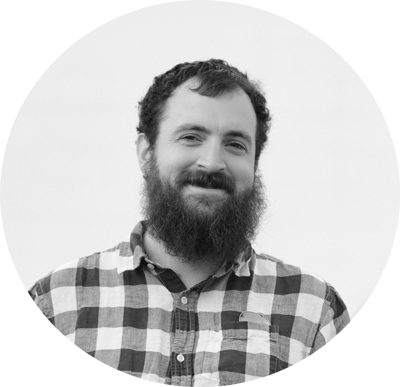We can't let Facebook Monopolize Connecting People
Mark Zuckerberg wants you to trust Facebook, despite all evidence that you shouldn't. During his headline-grabbing feud with Tim Cook comparing his company to Apple, he said that Facebook is free to everyone because they want the whole world to be connected.
This is a distraction from their privacy woes. We don't need Facebook to get everyone connected - the rest of the internet can handle that task just fine without them. The web is built on a set of open standards, which means anyone can sign on pretty easily. This was true long before Facebook came along.
We're all free to build website, apps, businesses, and services that rely on the internet infrastructure. From the perspective of most users, there's nothing particularly special about Facebook's role.
Like all big tech giants, Facebook is always quick to remind us of their part in developing new technology and making the world a better place. But unlike all their competitors, they haven't actually provided the majority of people with anything particularly unique. Their real innovations are what they offer companies that buy their advertising.
Facebooks biggest innovations are in tracking user behaviour
If you read much of the popular press over the last few years, Facebook's biggest innovations are the features it has created for users. However, they've also wounded competitors like Snapchat by just copying the features users are most interested in. The most aggressive innovations have been in their advertising platform. By weaving Facebook throughout the web with things like the ubiquitous "like" button, Facebook has unprecedented knowledge of what its users (and indeed, non-Facebook users) are doing throughout the web.
This information is incredibly valuable to advertisers, and it's one of the reasons you often see ads for things you've previously searched for, or even just talked about with your friends online. This makes sense - advertisers are Facebook's customers, so that's where their most groundbreaking innovations are focused.
Facebook's endgame: a communications monopoly
The only thing unique about Facebook is its ubiquity. Between their four main apps: Facebook, Messenger, Instagram and WhatsApp, they handle more of our communications that anyone else.
Facebook wants a monopoly on human connection.
The Facebook business model is to turn our communications into profit. This is done through targeted ads generated based on what you say to your friends and family, where you go, and how you behave. We all kinda realize this, but it can make some people a little uneasy when thinking about just how much Facebook knows.
We don't *need* to use Facebook
Here's the thing, there are countless other ways we can connect with each other. Facebook wants a monopoly on human connection, but we don't have to let them have it. There are plenty of alternatives, such as Skype (owned by Microsoft), Telegram, Google Hangouts, Twitter, iMessage, and countless other services. All of them enable us to connect globally in one way or another. You could even run your own web server, host your own messaging service, and force your friends to use it if they want to get in touch with you (although this may be a bit extreme...)
Every choice has its trade-offs. Critics have argued Telegram isn't particularly secure, and numerous governments are banning it. Google and Twitter, of course, both have their own ad-targeting motivations to exploit our privacy, though they seem to have a better track record than Facebook so far. Website publishers used advertising to generate revenue long before they started exploiting our privacy. At the end of the day, we can choose services that enable advertising while also respecting users. We can have ad-supported media and privacy.
I'm not saying everyone should ditch Facebook immediately - lots of people find it very useful, and for good reason. But we shouldn't forget that they're not interested in what their users think - they're interested in how we behave, and in selling that information to others. Go ahead, use Facebook all you want - but don't for a moment think that they're trying to make the world a better place when they're just trying to make a buck.
